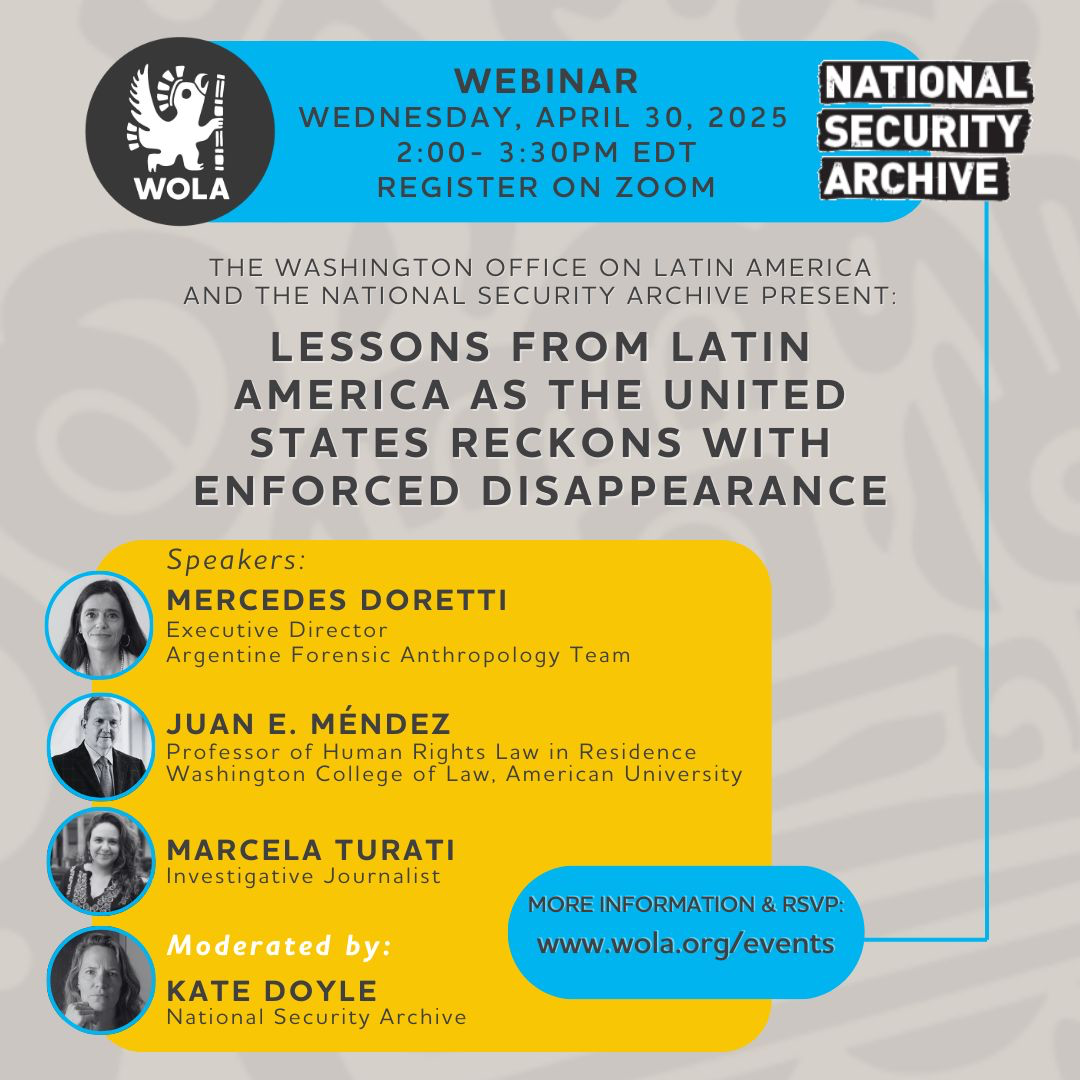Watch the recording
Wednesday, April 30, 2025 2:00 PM - 3:30 PM ET
Join us for an online event on Wednesday, April 30, from 2:00-3:30 pm U.S. Eastern time (18:00–19:30 UTC) with three people known worldwide for the instrumental roles they have played in revealing enforced disappearances in their countries, investigating them, accompanying victims, and fighting for accountability.
Learn about disturbing parallels between the U.S. government’s current trajectory and what their nations have lived through—and learn about how courageous people from many walks of life have responded.
Speakers will include:
- Mercedes Doretti, Executive Director, Argentine Forensic Anthropology Team
- Juan E. Mendez, Professor of Human Rights Law in Residence, Washington College of Law, American University
- Marcela Turati, an investigative journalist based in Mexico
- Kate Doyle, Senior Analyst at the National Security Archive, will moderate.
- Carolina Jiménez Sandoval, President of WOLA, will introduce the event.
Register for the event
Enforced disappearance is not codified in U.S. law as a standalone crime. Nonetheless, we are starting to see across the United States actions targeting immigrants that could meet the definition. As of late April, the Trump administration has sent 288 people, most of them citizens of Venezuela, to a notorious prison in El Salvador. It has happened with a near-total lack of transparency.
Neither the U.S. nor the Salvadoran government has shared the names of these 288 individuals: what we and their loved ones know comes from media leaks or from victims’ legal actions, as in the case of Kilmar Abrego Garcia. All are now being held in a Salvadoran mega-prison in an extra-judicial manner, without charges or any hope of a day in court. This is enforced disappearance.
Latin America has a long and brutal legacy of the use of enforced disappearance. But many countries also have proud histories of human rights defenders who have fought the practice effectively.

